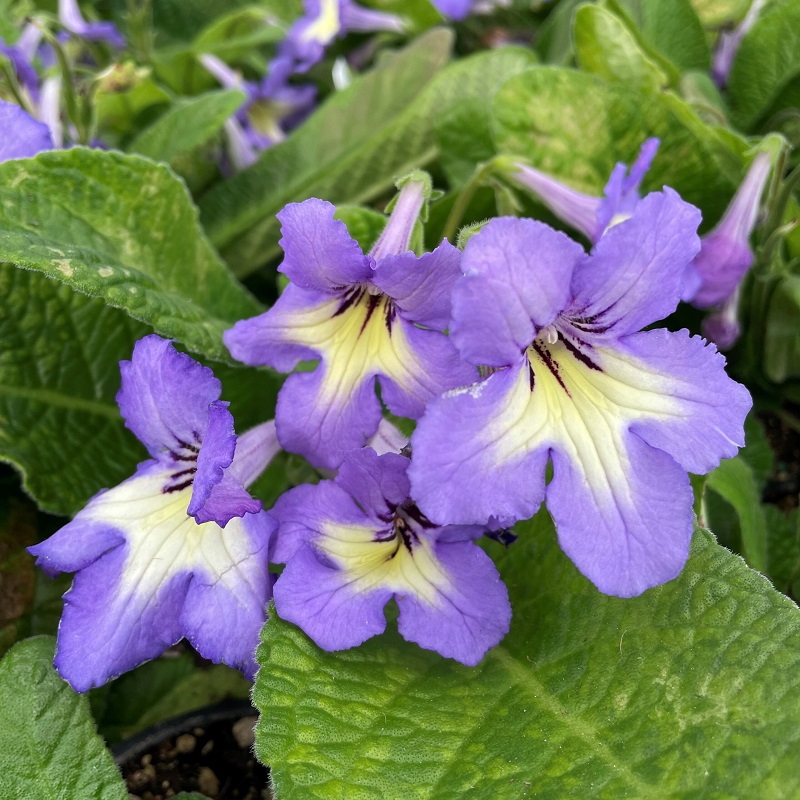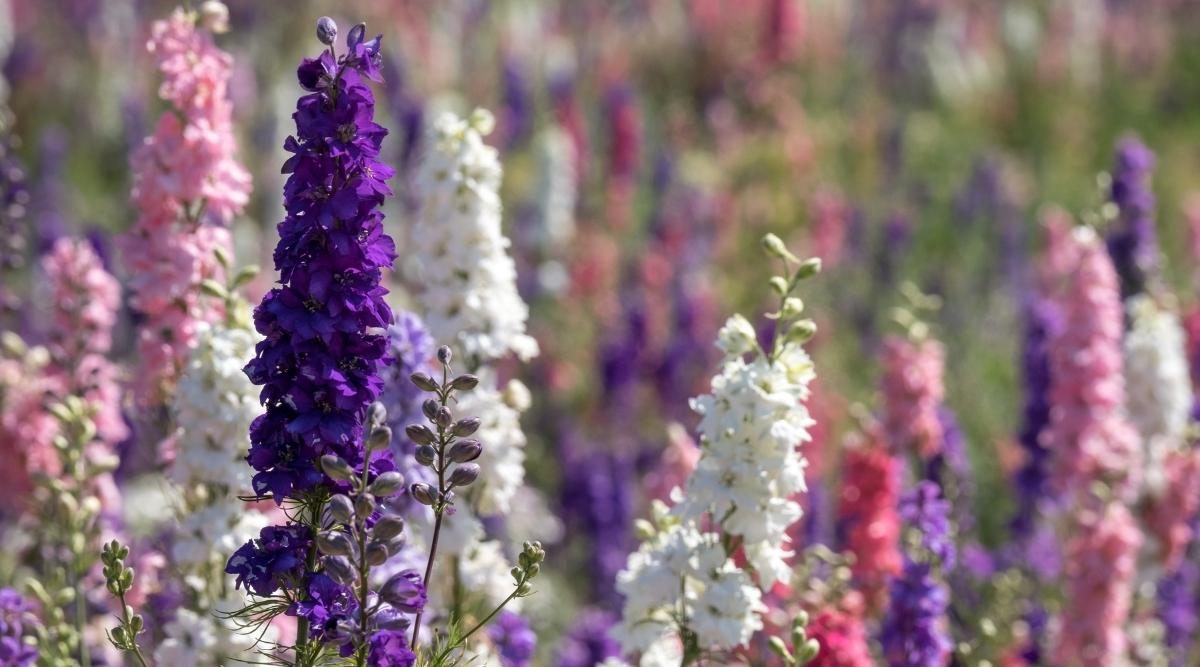When and How to Sow Delphinium Seeds in the UK
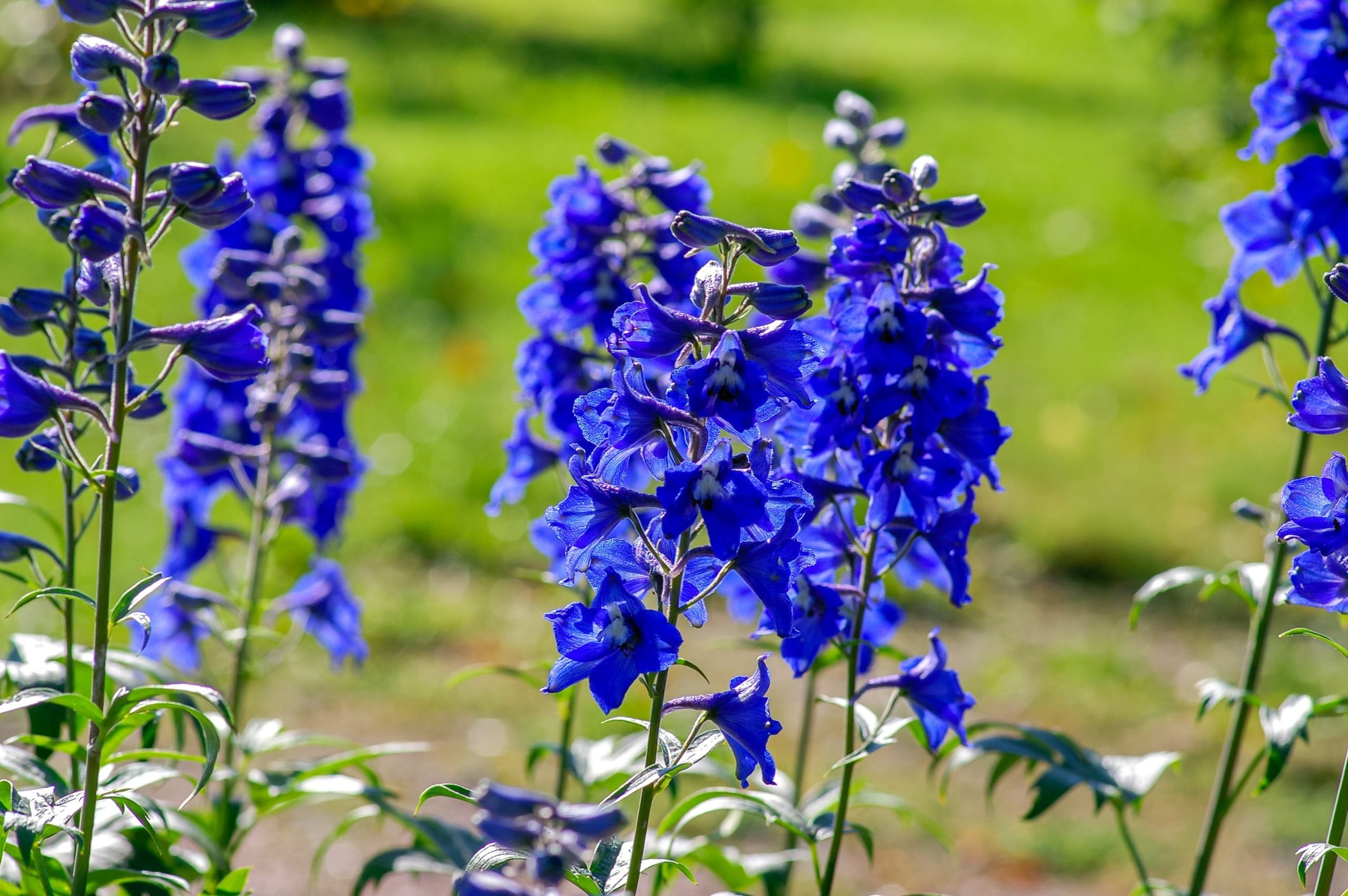
Table of Contents
Adorn your indoors and outdoors with perennial borders by adding this wonderful summer blossoming beauty.
Delphiniums!
The dreamy delphiniums are perennial flowering plants with around 300 species. From the genus of Ranunculaceae family, this flower comes in shades of blue, purple, pink, red, white, and yellow. Some delphinium species are well-known for attracting butterflies and hummingbirds through their flowers during the summers.
If this is your first time growing at home, we will teach you how to plant, grow and care for them. When to sow delphinium seeds in the UK will be your first question. From sowing seeds to enjoying the beautiful view of these delightful flowers, we will share the whole process in this article.
This blog shares both options, to grow them indoors in a pot or outdoors on the land. So, get ready to have a dramatic view in your garden with multiple shades of this flower.
When to Sow Delphinium Seeds in The UK?
The best time to sow delphinium seeds in the UK is in March or April, after the last frost. It gives them plenty of time for the flowering season. You can use these mixed seeds for sowing to get a garden bed filled with multiple colours of delphinium.
How to Grow Delphinium Indoors
Delphinium makes a vibrant indoor plant for your main gate or the windows. The beautiful colours of these plants will keep you joyful throughout the day. This short-lived perennial spread its beauty of creativity for a few years. They bloom through the summer and stand tall during these days.
Growing them indoors can be done with the following steps –
1. Preparing the Seeds
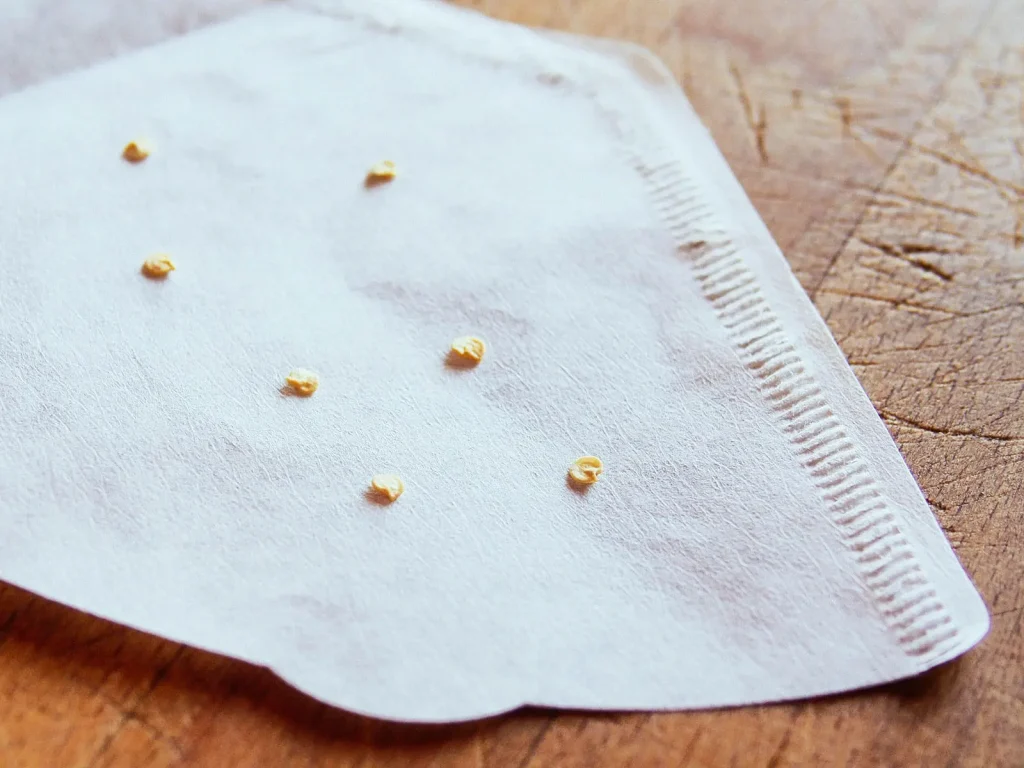
Store your seeds in the refrigerator until the time of sowing them. Warm temperatures can harm the germination process. Take them out of the fridge right before the planting process. To enhance germination, wrap the seeds in a moist paper towel and place them in the refrigerator in an air-tight container. Keeping them in this condition for three days will accelerate the germination process when sown. For indoor sowing of seeds, start the process eight weeks before the last frost.
2. Sowing the Seeds
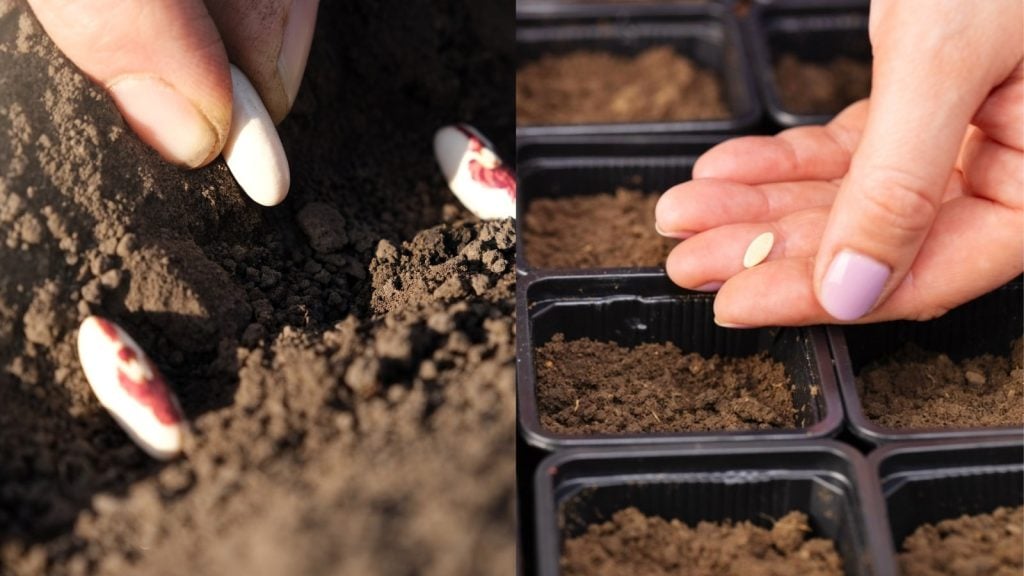
Fill a small planting tray with compost and place seeds on the layer. It is always better to go with multiple seeds due to the uncertainty of the germination process in these seeds. Press them a little so that they settle in the compost properly. Make sure the soil is moist and drains well. Cover the layer with compost and spray some water on the surface. The seeds can get rot on receiving excess water. Be sure to check the soil’s texture before watering the surface. When to sow delphinium seeds in the UK will be clear to you after this process.
3. Maintaining Germination
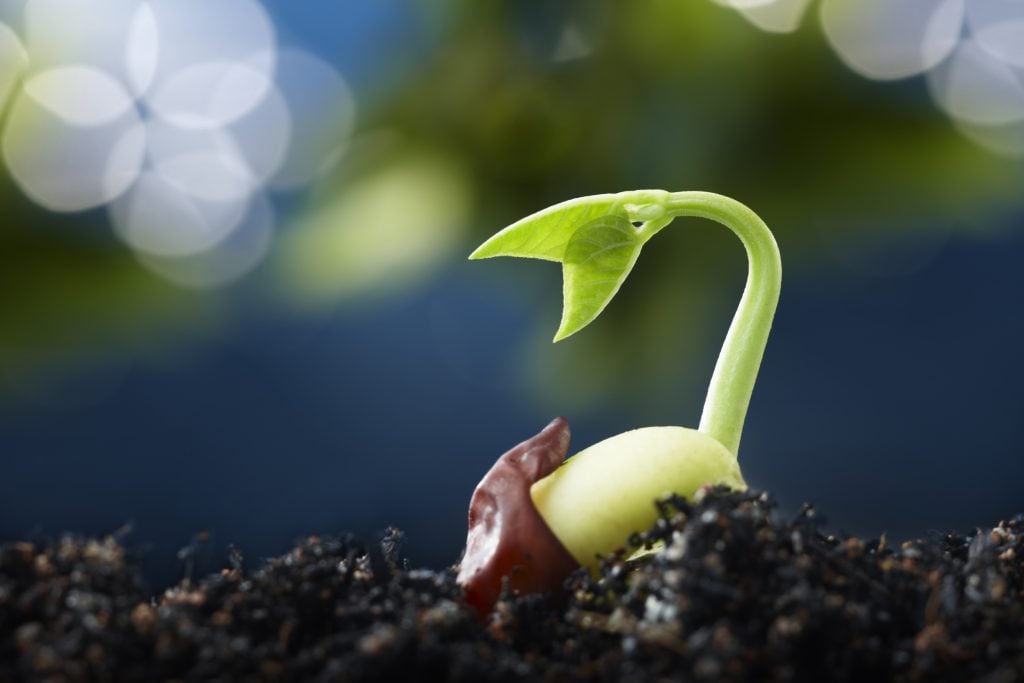
The germination process can take up to three weeks. It is important to look after the soil texture and temperature during these days. Along with checking the moisture, it is also necessary to give them warmth. You can use a heat mat to regulate the temperature during this initial process. Use this mat only till the seeds have not germinated. Once the seeds have sprouted, they will not need such temperature regulation.
4. Using Grow Light
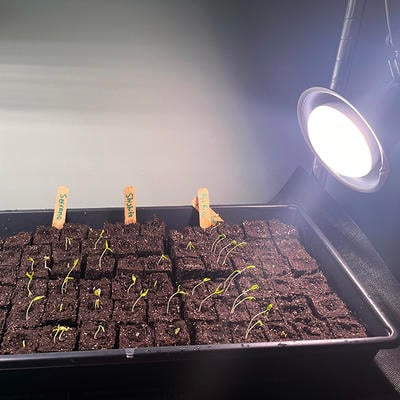
Along with knowing when to sow delphinium seeds in the UK, understanding the germination process is crucial. The germination and growing process require full sun. Your plant will thrive in a sunny atmosphere for at least 6 to 8 hours daily. You can germinate the seeds indoors with grow light as well.
Grow light is an electric light that helps the plant grow by providing a light spectrum similar to that of the sun. Place the tray under the grow light for 8-10 hours daily. The light should be about one to two inches away from the plant.
Before shifting the saplings into a bigger pot and transferring them outdoors, make them used to the sunlight. Let them sit in the sun for a few hours every day before you put them in their final pot.
5. Transferring to a Bigger Pot
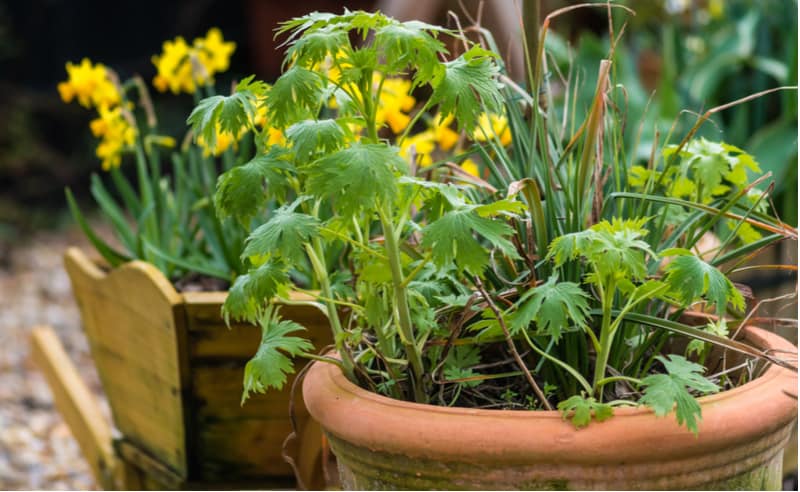
From 15 to 21 days, you will see the seeds germinate. As you notice the small leaves in the tray, plant them into the bigger pot of about 8-inch diameter. The larger pot will give them the space to grow well and expand their roots.
Delphinium needs rich and moist soil to grow well. The presence of fertiliser will help in keeping the plants healthy. However, it is advisable to use a mild fertiliser that does not overfeed the plants.
Once the soil and fertiliser reach the pot, move the seedlings from the tray to the pot. It is advisable to give enough space for each seedling to grow wider and heavier. Restricting space can result in less growth of beautiful flowers. Choose to plant one seedling in each pot so that they can grow freely.
How to Grow Delphinium Outdoors
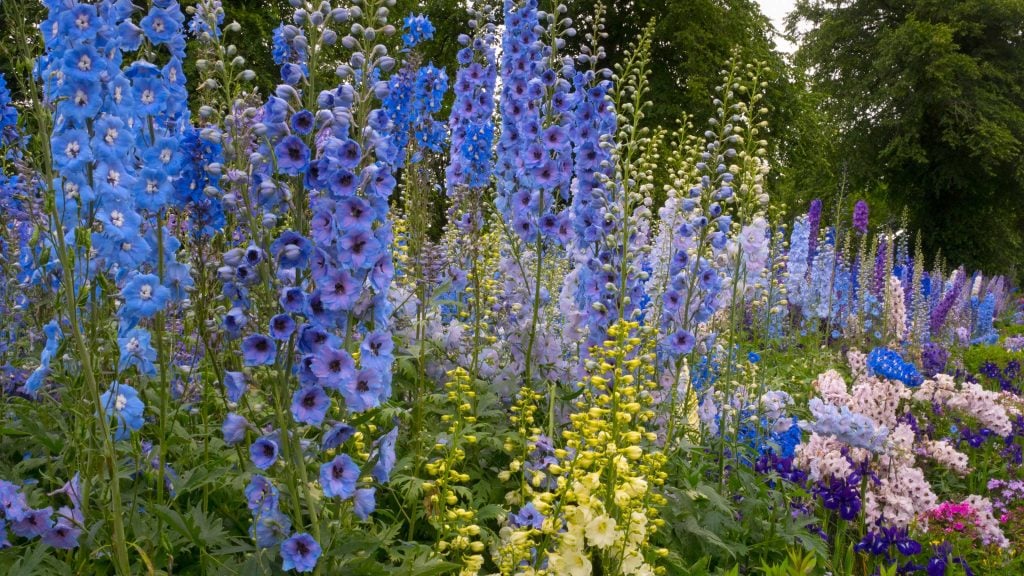
Just like you grew the seeds indoors, delphinium can also be planted outdoors. The process of growing them outdoors is almost similar compared to indoor ones. Allow the seeds to cool in the refrigerator before sowing them. You can also repeat the moisturising process of putting them in a wet paper towel.
- Germination in a tray is not necessary for sowing seeds outdoors. However, if you wish to germinate them separately, use wet paper or a toilet roll. Place your seeds on this wet surface and cover them. Store the paper in a space where there is a little light and wait for them to germinate. It will take around one week for the seeds to sprout.
- Once the seeds germinate, you can sow them outdoors in the flower beds. Make sure the soil is rich with fertiliser and moist to support the growth. Distribute the seeds on the surface and cover them with a little soil. Keep watering them regularly to keep the soil moist.
- Select a place that will give the flowers regular sunlight for 6-8 hours. Also, take care of the long stems during windy seasons. The delicate flower stems tend to break in storms and extreme winds. Surround them with larger plants to protect them from the wind.
Helpful Tips While Growing Delphinium
Provide support through stake or grid as the plant grows. It will help the perennials on the border to withhold their stability in times of storms and heavy rain with strong winds. The chances of collapsing are high in delphinium due to its long structure.
Water the plants every week to keep the soil moist. If you feel the soil drys up too much, you can choose to water twice a week. Use a flower fertiliser from the beginning and keep nourishing the plant every two to three weeks. They will help the flower bloom well.
Maintaining Delphinium
After knowing when to sow delphinium seeds in the UK, it is crucial to know about maintaining them. Here are some tips to understand the maintenance process of this delightful plant.
If you acknowledge any abnormalities in the stem or the flowers, inquire about pests. Any pest-affected part should be removed and burnt in a faraway place. By burning, you are reducing the possibility of it spreading to other plants or on other parts of the same plant.
After the blossoming, when all the leaves turn yellow, cut the whole plant and fertilise it again for re-growth. It will help them get through the winters.
Caution
This beautiful tall flowering plant is poisonous and can cause harm if ingested. The impact of this can be seen not only on humans but also on animals. All the parts of the plant and its seeds contain poison and can cause severe digestive issues. Even touching the plant might cause skin irritation. The plant has various diterpenoid alkaloids like methyl aconitine that cause such reactions.
Ingesting any part of this plant can also lead to death in a few hours. Thus, they can be dangerous for gardens with cattle, pets, or kids. Wild delphiniums are the root cause of cattle poisoning, which eventually leads to death. The primary toxic species Arenbarbeyi, occidentale, glaucescent, glaucoma, nuttallianum, bicolour Anderson, and Geyerii. It is always better to consider the surroundings before planting these flowers.
Plant This Beauty in Your Garden!
Now that you know when to sow delphinium seeds in the UK and many other tips, it’s time to have these beautiful flowers around. They look amazing in any outdoor space and give it a magical view. You can enjoy the mesmerising view while having your morning cup of coffee.
Grow these flowers indoors and outdoors with the help of the above steps and experience the dreamy delphinium.
Frequently Asked Questions
Do Delphinium Seeds Need Dark to Germinate?
Delphinium seeds do not need dark to germinate. However, if you plan to germinate them indoors, show them lightly once they germinate.
Are Delphinium Seeds Easy to Grow?
Yes, delphinium seeds are easy to grow. Some species of delphinium even flower in the very first year of sowing them. They are easy to grow and give a beautiful look indoors and outdoors.
What Climate Do Delphiniums Grow Best In?
Delphiniums grow best in a cold climate with considerable sunlight. They need a moderate combination of sun and coldness to thrive.

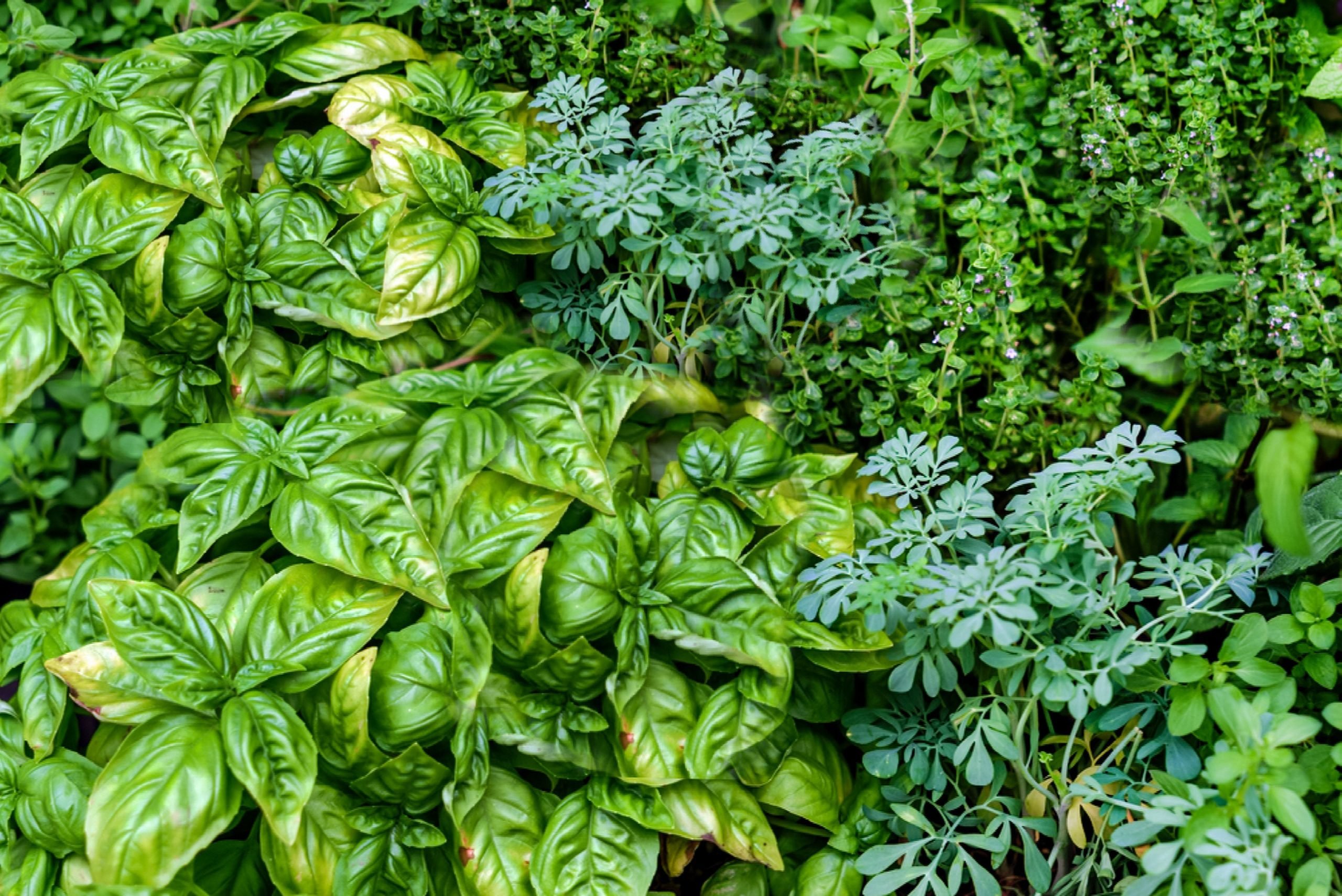
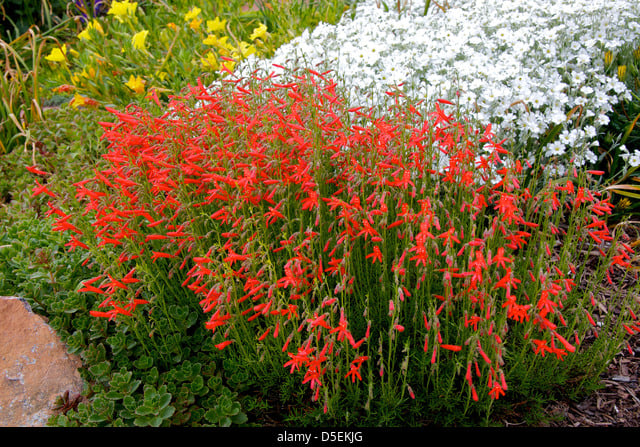
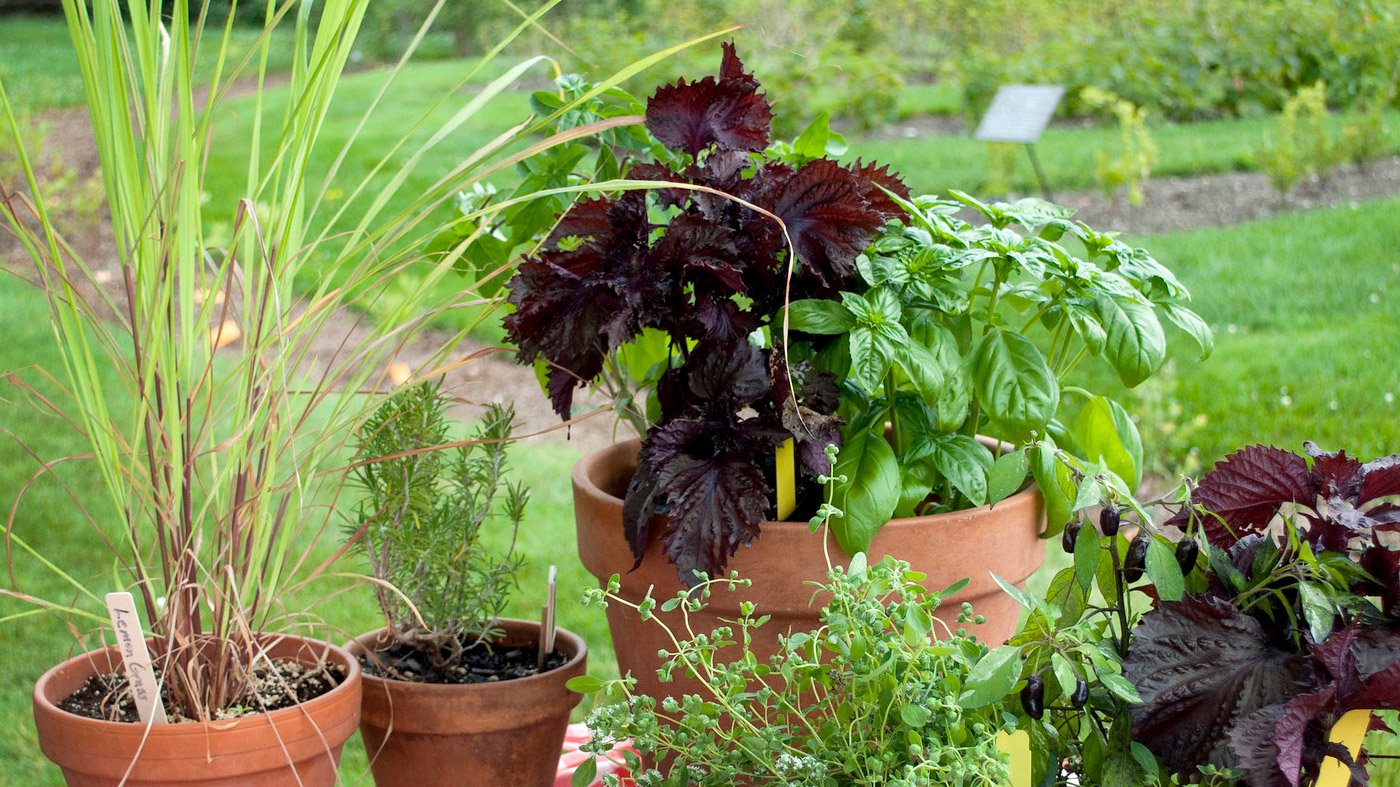
![How to Grow and Prune Lavender [Winter Care Tips]](https://staging.thearches.co.uk/wp-content/uploads/Lavender-Winter-Care-Guidelines.jpg)
